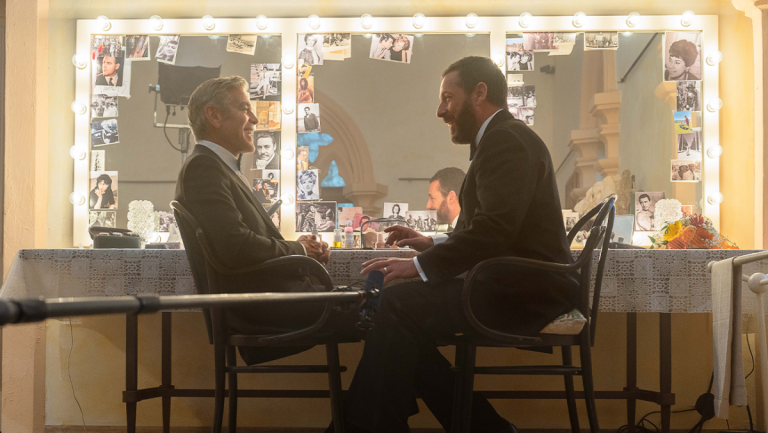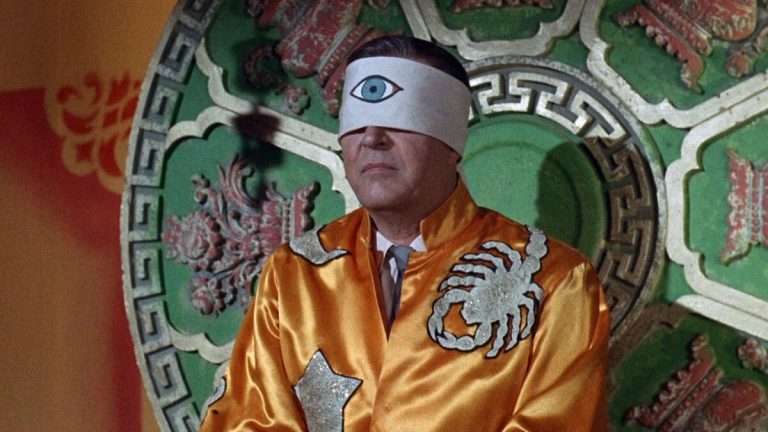Juliet Rowe (played by Natalie Denise Sperl) is a hospice caregiver. One night, She has been summoned to the house of an old lady, living far, far away in the wild and away from any speck of human habitation. Upon arriving at the house, she meets Lillian Gresham (played by Eileen Dietz), her host, who says she has been diagnosed with a rare cancer in her cardiac system. The latter offers her a plate of cookies, and looks quite healthy, leaving Juliet confused about the reason for asking for a caregiver.
However, strange things soon start plaguing Juliet – she hears noises, experiences a strange dream, is visited by a monster, etc. If you have watched enough horror movies, you know that the house (and the caregiving job) is a death trap for Juliet. Does Juliet successfully cheat death on this unfateful night? Alas, director Joe Cornet’s film, Night of the Caregiver (2023), is boring, bland, and predictable.
I wonder what has led to the fascination for horror movie plots where the caregivers are the primary targets of ghosts lurking in a house. Even Anubys Lopez’s Aged (2023) sees its protagonist, Veronica, stuck in a life-threatening scenario when she arrives at the house of a certain Mrs. Bloom as a temporary caregiver. Besides, there is also the idea that old age will go as far as they can to retain their youth, even if it means making a pact with the devil.
I am bound to wonder whether these movies are collectively trying to shed light on the unjust working conditions and labor hours of caregivers in the West. To top it all, there seems to be a persisting need to cut the protagonist from human civilization, almost as if evil could not lurk in a populous town neighborhood or a local transport, say, metro or buses. The repetition of these tropes inadvertently gives away the plot of the movie.
Juliet and Lillian’s characters shoulder the plot’s responsibility throughout its runtime. However, when it comes to the final showdown, a certain Detective Roman (played by Joe Cornet himself) jumps in front of the camera and the demon, letting the latter injure it, and almost saves the damsel in distress (read: Juliet). The character of this detective has more background story than Juliet. We learn that his mother was one of the caregivers the evil had snatched away, so his subplot is motivated by revenge.
On the other hand, Juliet constantly talks about how much she needs the money. But we are barely made aware of the reason for this need. Almost all the time, she is just seen screaming at the sight of the ghost. As mentioned above, the necessity of the climax feels almost comic, like you are watching a late-night television movie in the 90s.

In a horror movie that is persistent in its efforts at scaring the audience, there exists a delicate balance between the jump scares and the revealing of the ghost entity. Any horror movie that overplays the use of this ghost figure leads to the trickling away of the element of horror. Night of the Caregiver (2023) suffers from the latter. It also does not boast a good-enough background score that can keep up with the director’s intention of scaring the audience.
Besides, Lillian reveals that the name of this evil presence (or a form of it) is Ayush, a name so typically commonplace and Indian that it immediately drains away any element of horror that it is supposed to bear. Sperl and Dietz are seen dispassionately reciting their lines on the screen – the script is weak, the characters are half-baked, and the humor doesn’t land at all. Moreover, the film tries to convince you about daylight by lighting up a strong source of incandescent light through the windows.
Right before the credits start rolling, the audience is taken on a tour of Lillian’s house as if it were the Haunted Mansion installment in a shopping mall for cheap thrills, from flickering light bulbs to stuffed animals and bones of animals put out on display. Cornet’s movie, unfortunately, tries but fails to meet the criteria of a good horror movie. If you wish to indulge in one, A24’s latest Talk to Me (2023) is still playing in the theatres.





![Damsel [2018] Review – A Thoughtful, Absurdist Adventure Drama Set in the Mythic West](https://79468c92.delivery.rocketcdn.me/wp-content/uploads/2018/09/Damsel-2018-768x454.jpg)



